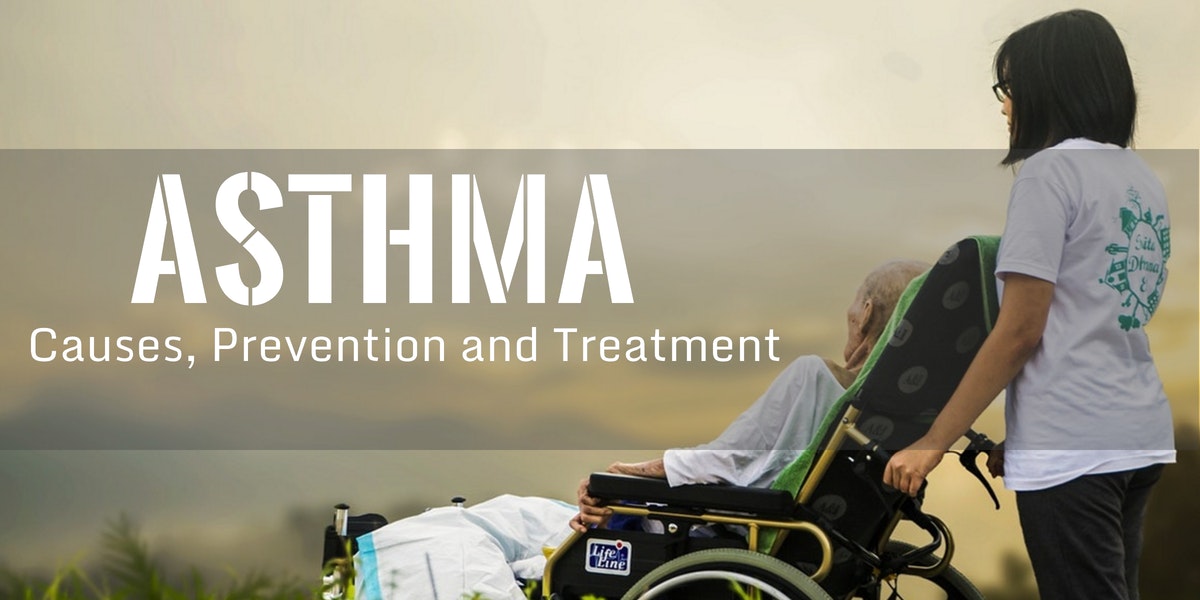Respiratory infections may be the number one cause of visits to U.S. healthcare centers, but asthma is a no less pressing healthcare concern. According to the U.S. Environmental Protection Agency, asthmatic problems account for nearly 2 million visits to America’s ERs every year, and recent statistics further show that the inflammatory lung disease affects as many as 7.4% of American adults and 8.6% of children. The number of asthma cases has been on a steady rise in all age, sex, and racial categories since the early 1980s, which is alarming if we take into account the fact that the condition is highly preventable. But what exactly causes asthma, and how can the disease be remedied efficiently?
Most Common Causes of Asthma
Asthma is a long-term inflammatory condition which affects the airways in the lungs, causing them to narrow, swell, and produce excess mucus. There are several triggers that contribute to development of asthma, especially if combined with presence of one or more risk factors such as heredity, smoking or exposure to secondhand smoke, chemicals, and similar air pollutants, obesity, and other allergic conditions.
The main asthma triggers include
- Allergens in the air (i.e. animal dander, pollen, dust mites, mold, cockroaches, etc.);
- Respiratory infections, such as colds and flu;
- Air pollutants (smoke, hazardous fumes, and various chemicals);
- Exercise;
- Stress and emotional triggers;
- Gastroesophageal reflux disease;
- Cold and windy weather;
- Certain medications (beta blockers, ibuprofen, naproxen, and aspirin);
- Sulfites found in certain foods and drinks such as dried fruit, shrimp, beer, and wine.
Most Common Asthma Treatments
While there is no 100% efficient cure for asthma, the disease can be remedied with quick-relief and long-term medications. While quick-relief inhalers based on short-acting beta2-agonists help relax the muscles in the airway area thus relieving acute asthma attacks and increasing lung intake of fresh air, long-term remedies are usually based on corticosteroids or omalizumab and should be taken on a daily basis to alleviate symptoms and prevent acute asthmatic attacks. In addition to pharmaceuticals, asthmatic patients are also advised to eliminate the triggers from their immediate environment and adjust their lifestyle to reduce the risk of acute attacks.
The ABC of Asthma Prevention
Preventing asthma is easier and more efficient than alleviating the side-effects of the condition once it takes root. To minimize the risk of asthma, try following the prevention guidelines listed below.
- Get flu and pneumonia shots. Vaccination against pneumonia and flu can prevent asthma flare-ups. Timely administered shots will reduce the risk of lung inflammation that can compromise your overall health and contribute to asthma development.
- Keep your breath in check. If you’re frequently experiencing breathing problems, it may be a wise idea to test your breathing with a peak flow meter. The results will show whether your lung capacity is normal or whether you should consult your GP.
- Oust triggers from your home. Identify asthma triggers in your living area and oust them as soon as possible.
- Take your allergy medications. Forgetting to take allergy medications won’t cause an asthma attack, but if you habitually leave out allergy remedies from your daily agenda, you risk increasing your immune system’s sensitivity and odds of asthma development.
- Stay out of triggers outdoors. If you’re allergic to pollen or airborne pollutants, it’s advisable to wear a cloth mask, scarf, or a similar protective face cover. This will reduce the intensity of acute attacks and prevent existing allergies from evolving into asthma.
- Work up a safe sweat. In cases where intense physical activity is an asthmatic flare-up trigger, patients are advised to make regular breaks during workouts. Monitor your breathing during exercises and stop whenever you feel your lungs are under pressure.
- Prompt your child to use inhalers. For childhood asthma, doctors usually recommend use of inhalers to take the pressure off airways and increase intake of air. In most cases, children grow out of asthma, but if your child’s symptoms persist, a visit to the doctor is the safest and most efficient way to get a proper diagnosis and treatment.
Don’t Let Asthma Take Your Breath Away
Be aware of the triggers that are causing the breathing problems and banish triggers from your environment before it’s too late to reverse the disease progress. Quality allergen-proof mattresses, avoidance of chemical fumes and tobacco smoke, regular home cleanups, and use of inhalers will prevent an odd breathing glitch from evolving into full-scale lung inflammation. Take action now – you’ll be able to enjoy lungfuls of fresh air for the rest of your life.




